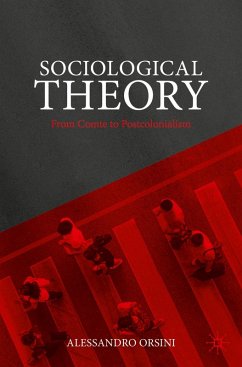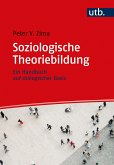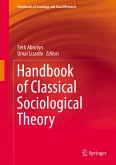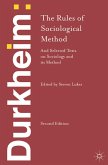- Patrik Aspers, Professor of Sociology, University of St. Gallen, Switzerland
"By revealing the basic elements of key thinkers and major trends - their similarities as well as disagreements between them - this book shows how to think sociologically. At the same time, it demonstrates that sociological theorising is not confined to the library but may guide interventions in the world of politics, and contestations of power. This is a book for teachers and not only students. Sociological theory as Alessandro Orsini tells it is lively, relevant, and positively edgy."
- Jack Barbalet, Professor of Sociology, Institute for Humanities and Social Sciences, Australian Catholic University, Australia
"Alessandro Orsini has delivered a distinctive textbook that should appeal to those searching for a compelling introduction to sociological theory that also delivers a unique slant on the discipline. Alongside chapters on schools of thought, Orsini has provided generous space to thinkers such as Pareto and Spencer whose influence is often overlooked elsewhere - readers will appreciate Orsini's passion for the historical development of the subject."
- Dr Mark Murphy, Reader in Education and Public Policy, University of Glasgow, UK
The first part of this textbook is dedicated to Comte, Spencer, Marx, Durkheim, Weber, Pareto, and Simmel. The second part covers the major contemporary sociological perspectives: Functionalism, Marxism, Conflict theory, Symbolic interactionism, Phenomenological sociology, and Rational choice theory. The third part is devoted to Postmodern theory, Feminist theory, Postcolonial theory, and Race theory.
The author uses contemporary examples to demonstrate how sociological theory can explain the most tragic phenomena of our time, including the war in Ukraine, the Israeli-Palestine conflict, US-China competition, nuclear proliferation, neofascism, and radicalization leading to terrorism, while providing an in-depth overview of its main problems.
Alessandro Orsini is an Associate Professor of Sociology in the Department of Political Science at Luiss University, Italy.
Dieser Download kann aus rechtlichen Gründen nur mit Rechnungsadresse in A, B, BG, CY, CZ, D, DK, EW, E, FIN, F, GR, HR, H, IRL, I, LT, L, LR, M, NL, PL, P, R, S, SLO, SK ausgeliefert werden.









